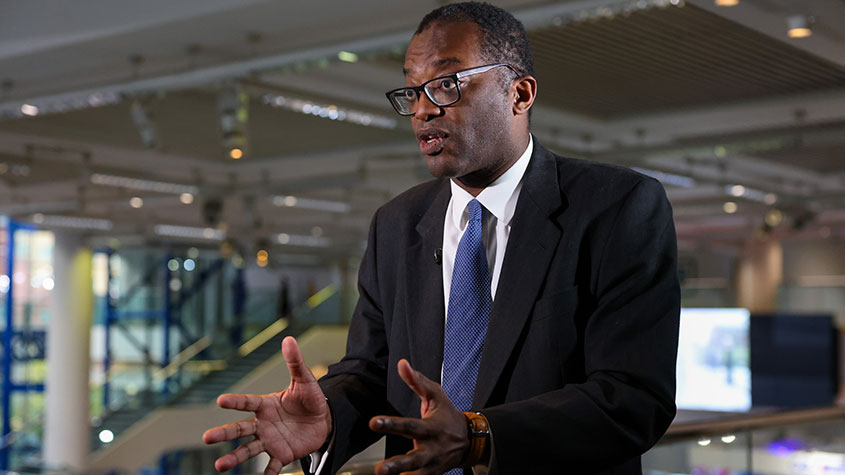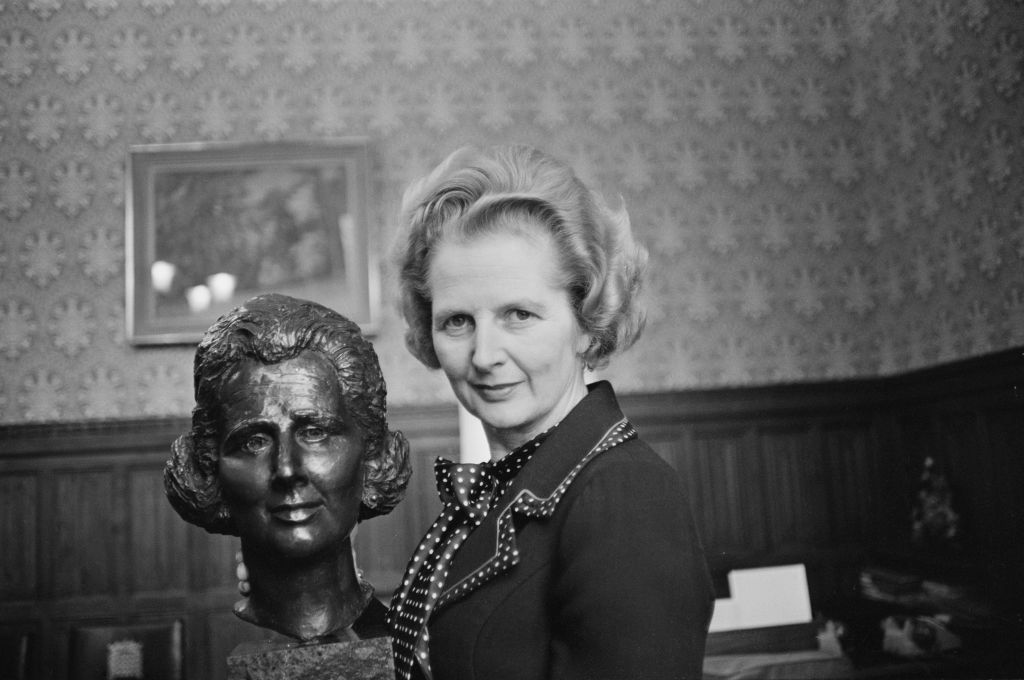Kwasi Kwarteng U-turns on top tax rate decision
Kwasi Kwarteng has U-turned on his top tax rate reduction announced in his mini-Budget at the end of September.


Get the latest financial news, insights and expert analysis from our award-winning MoneyWeek team, to help you understand what really matters when it comes to your finances.
You are now subscribed
Your newsletter sign-up was successful
Want to add more newsletters?

Twice daily
MoneyWeek
Get the latest financial news, insights and expert analysis from our award-winning MoneyWeek team, to help you understand what really matters when it comes to your finances.

Four times a week
Look After My Bills
Sign up to our free money-saving newsletter, filled with the latest news and expert advice to help you find the best tips and deals for managing your bills. Start saving today!
Today, Liz Truss and Kwasi Kwarteng made the first major U-turn in their government. The chancellor confirmed this morning that he will not be abolishing the top income-tax rate of 45p as he promised in his Budget two weeks ago.
The additional rate of income tax is paid by workers earning over £150,000 a year, and Kwarteng believed that by cancelling the top tax rate, he would be able to stimulate economic growth.
However, dozens of Tory MPs made it clear over the past week that they will not back the proposal, arguing it was unfair to be cutting taxes for the wealthiest in society amid the cost of living crisis. Even some of the highest profile members of the party, such as Michael Gove and Grant Shapps, publicly criticised the move.
MoneyWeek
Subscribe to MoneyWeek today and get your first six magazine issues absolutely FREE

Sign up to Money Morning
Don't miss the latest investment and personal finances news, market analysis, plus money-saving tips with our free twice-daily newsletter
Don't miss the latest investment and personal finances news, market analysis, plus money-saving tips with our free twice-daily newsletter
“We get it and we have listened”, tweeted Kwarteng. “It is clear that the abolition of the 45p tax rate has become a distraction from our overriding mission to tackle the challenges facing our country. As a result, I’m announcing we are not proceeding with the abolition of the 45p tax rate.”
Removal of the top tax rate: how will it affect your finances?
While the U-turn on the top tax rate might not directly affect most taxpayers, it may have significant indirect effects on people’s personal finances.
When the chancellor announced the tax cut in his mini-Budget on 23 September, the financial markets panicked. The value of sterling slumped and gilt yields jumped as investors digested the impact the cuts will have on the public finances.
Markets also began to price in much more aggressive interest rate hikes from the Bank of England. At one point, markets were predicting rates hitting 6% or more next year.
The turmoil in the markets caused mortgage lenders to panic. Hundreds of mortgage deals were pulled in the days after the chancellor’s announcement on the top tax rate as lenders retreated to re-price their offers based on future interest rates. This sudden re-pricing of risk sent shockwaves throughout the housing market.
Even though most taxpayers will benefit from Kwarteng’s other giveaways, notably the reversal of the National Insurance increase his predecessor Rishi Sunak bought in earlier in 2022, and a potential cut in the basic rate of income tax from 20p to 19p (although I wouldn’t rule out another U-turn at this stage) rising interest rates will hit borrowers.
Sarah Coles, senior personal finance analyst at Hargreaves Lansdown, said, “The Truss tax U-turn was more about politics than personal finances. It doesn’t save enough cash to make a material difference to the government finances. It means those on the lowest incomes will still be paying a huge price for tax cuts.”
Interest rate projections have fallen back after the U-turn on the top tax rate. However, markets are still pricing in rates of 5% or more by next year.
Guy Foster, chief strategist at wealth manager RBC Brewin Dolphin, said, “The pound and gilts have reacted well to the U-turn on plans to scrap the 45p tax rate. The derivatives market is now signalling one less rate increase since this U-turn on additional rate tax. The move is symbolic more than fundamental with the tax cut making up around £2bn of about £40bn per year increase in funding requirement announced at the mini-budget.”
Get the latest financial news, insights and expert analysis from our award-winning MoneyWeek team, to help you understand what really matters when it comes to your finances.

Rupert is the former deputy digital editor of MoneyWeek. He's an active investor and has always been fascinated by the world of business and investing. His style has been heavily influenced by US investors Warren Buffett and Philip Carret. He is always looking for high-quality growth opportunities trading at a reasonable price, preferring cash generative businesses with strong balance sheets over blue-sky growth stocks.
Rupert has written for many UK and international publications including the Motley Fool, Gurufocus and ValueWalk, aimed at a range of readers; from the first timers to experienced high-net-worth individuals. Rupert has also founded and managed several businesses, including the New York-based hedge fund newsletter, Hidden Value Stocks. He has written over 20 ebooks and appeared as an expert commentator on the BBC World Service.
-
 Early signs of the AI apocalypse?
Early signs of the AI apocalypse?Uncertainty is rife as investors question what the impact of AI will be.
-
 Reach for the stars to boost Britain's space industry
Reach for the stars to boost Britain's space industryopinion We can’t afford to neglect Britain's space industry. Unfortunately, the government is taking completely the wrong approach, says Matthew Lynn
-
 Was Margaret Thatcher great for Britain?
Was Margaret Thatcher great for Britain?The 'Iron Lady’ would be celebrating her 100th birthday this month. Margaret Thatcher rose to power in 1979 as the first ever female prime minister and was one of the most controversial leaders in history, but how did her policies shape today’s finances?
-
 UK wages grow at a record pace
UK wages grow at a record paceThe latest UK wages data will add pressure on the BoE to push interest rates even higher.
-
 Trapped in a time of zombie government
Trapped in a time of zombie governmentIt’s not just companies that are eking out an existence, says Max King. The state is in the twilight zone too.
-
 America is in deep denial over debt
America is in deep denial over debtThe downgrade in America’s credit rating was much criticised by the US government, says Alex Rankine. But was it a long time coming?
-
 UK economy avoids stagnation with surprise growth
UK economy avoids stagnation with surprise growthGross domestic product increased by 0.2% in the second quarter and by 0.5% in June
-
 Bank of England raises interest rates to 5.25%
Bank of England raises interest rates to 5.25%The Bank has hiked rates from 5% to 5.25%, marking the 14th increase in a row. We explain what it means for savers and homeowners - and whether more rate rises are on the horizon
-
 UK inflation remains at 8.7% ‒ what it means for your money
UK inflation remains at 8.7% ‒ what it means for your moneyInflation was unmoved at 8.7% in the 12 months to May. What does this ‘sticky’ rate of inflation mean for your money?
-
 Would a food price cap actually work?
Would a food price cap actually work?Analysis The government is discussing plans to cap the prices of essentials. But could this intervention do more harm than good?